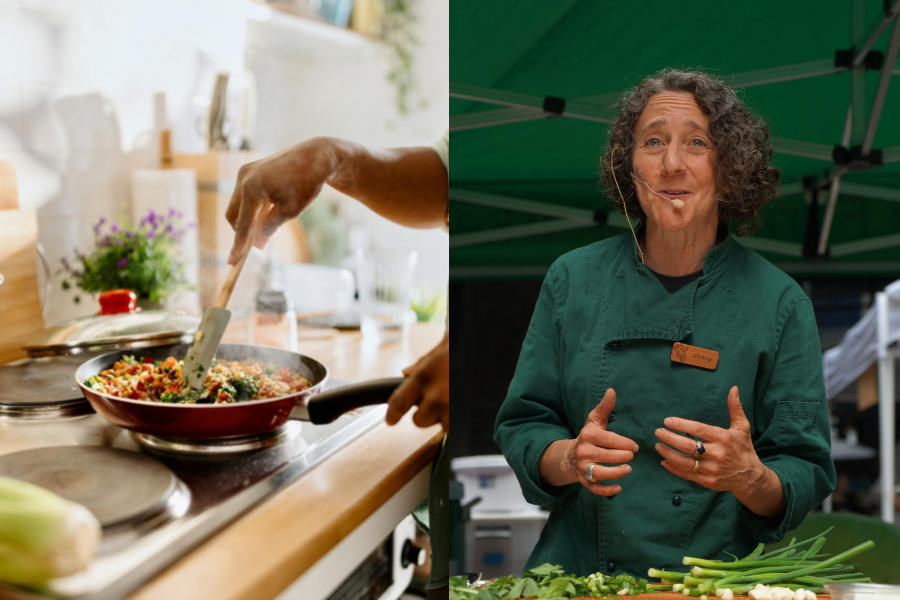
As we age, nutrition is an essential factor in making sure we stay healthy long-term.
University of Minnesota Earl E. Bakken Center for Spirituality & Healing faculty Jenny Breen is a professional chef and advocate for sustainable food systems and food justice. She shares tips for prioritizing nutrition and making sustainable food choices.
Q: How do nutritional needs and access to food change as we age?
Breen: Generally, what we need for health doesn’t change — whole foods including lots of fiber, quality fats, proteins, antioxidants, minerals, vitamins and more — but the quantity and proportions change as our metabolism and activity slows. These changes aren’t dramatic for most people, as long as they remain physically and mentally active. We should continue to enjoy food and nourish ourselves for optimal health, adjusting for specific conditions as needed.
Q: How can I stretch my food budget and minimize food waste?
Breen: People often see healthy food as more expensive. If we move our focus away from meat and highlight other proteins like beans, legumes, eggs, soy, whole grains, fruits and vegetables, we can often eat very well on a reasonable budget. To cut down on waste, emphasize preparing your own meals and try to buy in-season and in bulk from local farmers markets and grocers. Using frozen and canned ingredients when available and appropriate is another great option.
Q: How can I shift recipes and grocery planning when cooking for one person?
Breen: Many of the same principles apply — buying and cooking in bulk means you can cook once and eat several times. Use basic formulas. You might have a big pot of beans you use in a salad, initially, and then tacos or soup later in the week. You can also freeze most everything if you get tired of using it. I like shopping in bulk because it allows me to buy as much or as little as I want, and I also like to keep things in bulk so I can mix and match as I like. Also, invite friends and family to cook and eat together!
Q: What ingredients are essential for healthy aging?
Breen: Nutrient diversity is key. Try to mix and match and include as many whole foods, fiber and quality fats and proteins as possible. Some of my favorite ingredients include leafy greens, orange and red vegetables, olive oil, avocados, nuts, seeds (fat, protein and fiber, all in one!), and beans and legumes.
Q: How is your work supporting Minnesota communities?
Breen: I spend most of my time educating future and current health professionals — and their patients — about food’s role in preventing disease and promoting health. It’s important to recognize inequities in our food system that make producing and accessing healthy food difficult for many, especially folks in marginalized communities. We all deserve access to healthy, whole, sustainable food and the skills to procure and prepare it. It is what makes us so we are healthier as individuals, across communities, and as a planet.
Jenny Breen is a chef and lecturer in the Earl E. Bakken Center for Spirituality & Healing and the department of Food Science and Nutrition at the University of Minnesota. She is the coordinator of the teaching kitchen at the Redleaf Center for Family Healing at Hennepin Healthcare, and a food systems and culinary nutrition consultant. She is an advocate for sustainable food systems and food justice, and works directly with farmers and producers in the Twin Cities area. She was co-owner of Good Life Cafe and Catering, a sustainable food business, from 1996-2013. Jenny works to build strong networks within health and food systems for greater access to food, support for sustainable farming, and understanding of cooking as a health strategy.
- Categories:
- Health
- Food
- Health policy
- Population health




